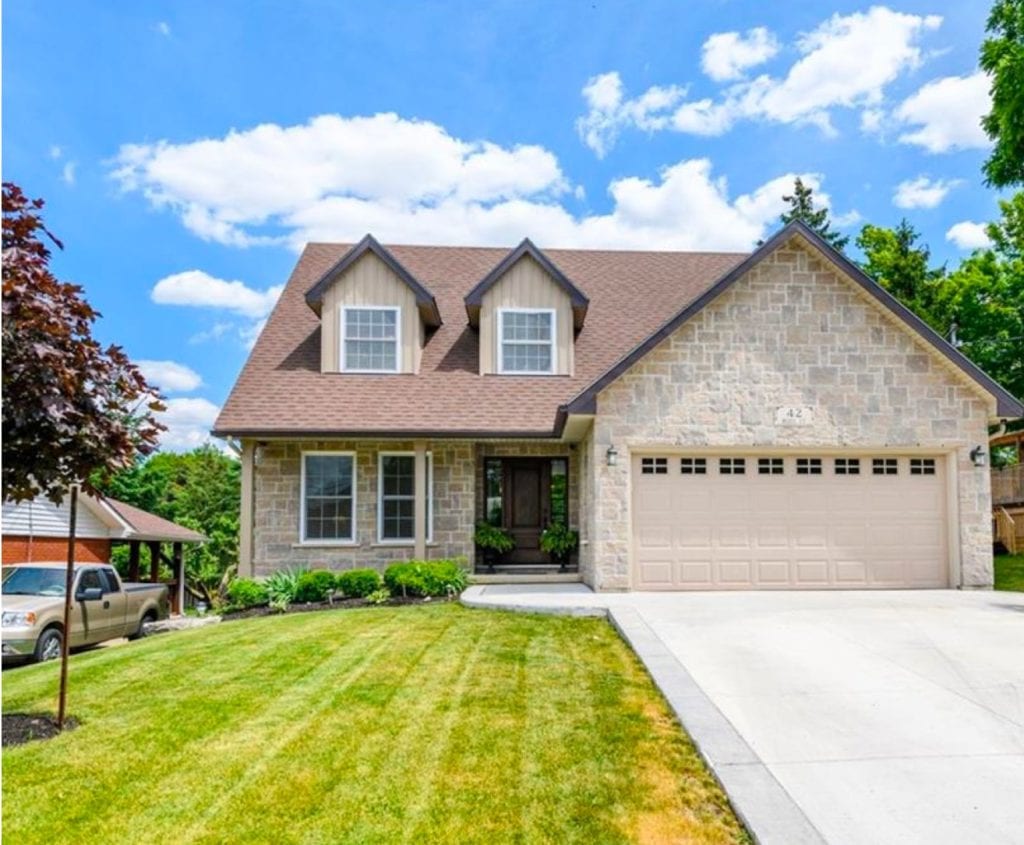
Buying and selling real estate is probably one of the most exciting and stressful transactions in a person’s life. Between the high sums of money involved, the actual size of the asset, and the legalities of conducting such a big deal, it’s easy to see why homeowners can feel slightly overwhelmed by it all.
One often overlooked part of the transaction is the real estate closing. As the name suggests, this is often the last part of the transaction, the final step before the deal is complete.
The real estate closing process is one of the most misunderstood parts of buying and selling real estate in Ontario. Let’s take a closer look at what you can expect from real estate closings.
Read more about the steps to buying a house on our blog here.
What Does Closing Mean in Real Estate?
Essentially, when we talk about the real estate closing process in Ontario, we’re talking about the real estate closing date or the final stage of the transaction, when the property title officially passes from the seller to the buyer.
Immediately after closing, the buyer can obtain the keys to their new property, and everything is considered complete.
However, the real estate closing process does involve navigating through some red tape. In most cases, buyers and sellers will engage the help of their real estate agent, lawyer, and mortgage lender to work together and complete the closing process.
Before you close on a property, you have to put in an offer. Learn about putting an offer on a house on our blog here.
Professional Roles in Real Estate Closings
When it comes to the real estate closing process, there is usually a wider team of professionals involved in making sure the entire transaction goes off smoothly. Here are some of the professionals who typically work on real estate closings:
Real Estate Agents and Brokerages
Your agent and their brokerage are your guides through the process of buying a home. They help you find the right property, educate you on the home’s benefits, and are there to support you throughout the entire home buying process. They prepare your offer and negotiate the various terms and conditions. In the closing process, your agent will handle most logistics, ensuring that deadlines are met and due diligence is performed.
Real Estate Lawyer
Probably the most important person facilitating the closing process is the real estate lawyer. A real estate lawyer’s job is to review all the legal documents and ensure everything is in order. They will review the Agreement of Purchase and Sale and will ensure that there are no liens registered against the property. In a condo transaction, they will review the Status Certificate. Real estate lawyers also act on behalf of their clients, holding closing funds and mortgage funds in trust until they can be transferred over to the seller. The real estate lawyer is also tasked with signing the land transfer documents and property title to finalize the transaction.
Mortgage Lender
Your mortgage lender is charged with making sure the mortgage funds are available on closing day. They work together with the real estate lawyer to ensure that the seller is able to be paid.
Home Inspectors
If your property sale was contingent on things like home inspections, it’s critical that the home inspectors complete their work before the closing day and that all contingencies are met before the deal goes through. This is also something that your agent and lawyer will review.
Insurance Provider
You will need to provide proof of insurance to your lawyer from your insurance provider. In some cases, some sellers also require closing insurance, which protects the seller in case the financing falls through at the eleventh hour.
What are the Real Estate Closing Costs in Ontario?
In addition to your deposit and down payment, buyers must also plan ahead to cover specific closing costs. Closing costs can vary between transactions, however, most professionals recommend having at least 2-4% of the total purchase price saved to go towards closing costs.
Real estate closing costs include:
- Home inspection fee – If a home inspection is part of your conditions, you can expect to pay for this ahead of the actual closing day. In most cases, the home inspection fee is around $500.
- Land transfer tax – In Ontario, the land transfer tax is calculated on a sliding scale depending on the total cost of your home. Buyers in Toronto must also pay a Toronto Land Transfer tax.
- Legal Fees – Lawyers don’t work for free. Expect to pay anywhere between $500-$1000 on lawyer fees.
- Provincial Sales Tax on Mortgage Insurance – If you have mortgage default insurance, you will need to pay the PST on it in cash at the time of closing. The insurance cost itself is covered in your mortgage payment.
- Title Insurance – This is a type of insurance required by lenders to protect in the case of a property dispute. In most cases, title insurance can cost up to $300.
There are also some unofficial real estate closing costs you need to consider including:
- Moving costs
- Reimbursement to the seller for pre-paid utilities
- Property taxes
- Storage fees
Are you a first-time homebuyer? The First-Time Home Buyer Incentive can help with some of these closing costs. Find out more on our blog here.
How to Prepare Closing Documents in a Residential Real Estate Transaction
Preparing your closing documents in a residential real estate transaction is a joint effort between you, your real estate agent, and your lawyer.
You and your agent will first put together all the necessary documents required for your lawyer, these items include the Agreement of Purchase and Sale, home inspection report, personal information, property insurance, and other pertinent documents.
From there, your lawyer will take the information and prepare other essential documents including a review of the Agreement of Purchase and Sale, title search, status certificate (for condos), statement of adjustments, financial statements, zoning and tax searches, land transfer, and more.
Once your lawyer is satisfied that everything is in order, the transaction will proceed.
Canada’s mortgage rules changed in 2020, read our blog here for everything you need to know.
What to Expect on Closing Day in Ontario
Closing day is probably the busiest and most exciting part of buying a home. It’s the culmination of all your hard work and organization. The day that you will officially take possession of your new home.
It’s a good idea to clear your schedule on closing day since there are many moving parts. Although most of the heavy lifting will come from your mortgage lender, agent, and lawyer, you should still make yourself available if needed.
Here’s an outline of what closing days typically look like:
- Your mortgage lender provides the mortgage funds to your lawyer who holds it in trust.
- You are required to also provide your down payment (less the deposit) to your lawyer along with all the predetermined closing costs.
- Your lawyer will review all the documents, make the payment to the seller, and registers the home in your name.
- You will receive the deed and keys to your new home.
Real estate closings can be complicated. It’s best to have an experienced Hamilton REALTOR® on your side. Call Michael St. Jean Realty at 1-844-484-SOLD or email us here for your next real estate transaction.



